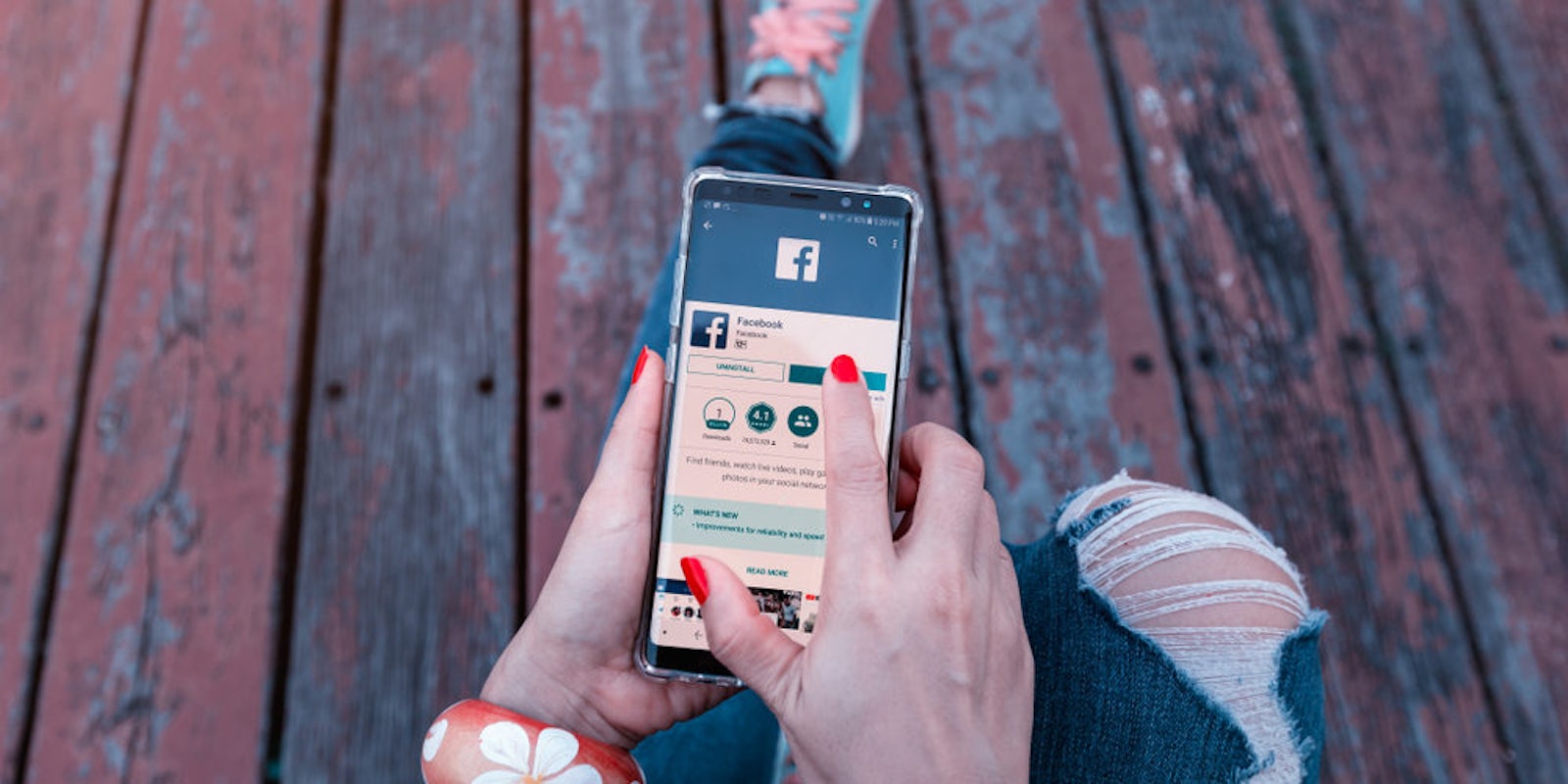A troubling report late Tuesday revealed that Facebook has been secretly paying teens and adults to install an app called Facebook Research that monitors the user’s phone and internet use, not to mention location.
According to TechCrunch, the app is similar to Onavo Protect, a VPN Facebook acquired in 2013 that was pulled from the App Store in August 2018 after it was found to have violated Apple’s data collection rules. As per App Store guidelines, and as Mashable notes, “collecting information from other apps installed on a user’s a device is something that is a clear no-no with Apple.”
Here, however, Facebook’s Research app circumvents these guidelines and can “decrypt and analyze their phone activity,” TechCrunch found. (It’s an ironic use of a VPN, which is supposed to help users protect their privacy when using the internet.)
If you’re wondering why Facebook is using an apparent clone of an app that has since been banned, Gizmodo cites a Wall Street Journal report that detailed how data from Onavo provided Facebook vital insight for key business decisions, including a redesign and the acquisition of WhatsApp. And as for targeting teens, it’s supposedly a reaction to reports that suggest they’re ditching the platform.
Since 2016, Facebook has reportedly been paying people ages 13 to 35 a small fee of up to $20 (in gift cards) per month plus referral fees to “sell their privacy” by installing the iOS or Android version of the app and keeping it running. However, Facebook tried to downplay its involvement by working under the name “Project Atlas” and using third-party beta testing services like Applause, BetaBound, and uTest to get users to install the app via ads on Instagram and Snapchat—platforms that are not only separate from the App Store, they’re also known to be widely used by teens. According to the report, Facebook was only mentioned in the installation instructions on some of the sign-up processes.
Here’s an alarming list of how much data Facebook is harvesting from the app, according to Guardian Mobile Firewall security expert Will Strafach, who investigated it for TechCrunch:
- contents of private messages in social media and chats from instant messaging apps, including photos and videos
- emails
- web browsing activity
- what apps are on your phone and the content in them
- which apps were used, and how and when (even when the app uses encryption)
- location history of where the owner had physically been
- data usage
- screenshots of their Amazon order history page (that Facebook asks users to take occasionally)
Following the report, Facebook told TechCrunch that it will shut down the iOS version of its Research app. Google has yet to comment on what will happen to the Android version.
In a statement to the writer who broke the news, Josh Constine, a spokesperson for the company said:
“Key facts about this market research program are being ignored. Despite early reports, there was nothing ‘secret’ about this; it was literally called the Facebook Research App. It wasn’t ‘spying’ as all of the people who signed up to participate went through a clear on-boarding process asking for their permission and were paid to participate. Finally, less than 5 percent of the people who chose to participate in this market research program were teens. All of them with signed parental consent forms.”
https://twitter.com/JoshConstine/status/1090512752517365760
According to BBC reporter Dave Lee, when he asked Facebook to clarify how parental consent was provided, Facebook merely said: “the vendors handled it.” Yet Lee observed that “For at least one of the vendors, consent was basically a checkbox.”
Another update relating to consent. FB statement said teens had provided parental consent before using the program. I asked FB what exactly that meant – signed form, scanned? – they said the vendors handled it. For at least one of the vendors, consent was basically a checkbox.
— Dave Lee (@DaveLeeBBG) January 30, 2019
The real concern here is how Facebook seems to knowingly target users who may not know better—young users who aren’t aware they are allowing a third party to gather so much information from them. (Case in point: Didn’t we just find out recently that Facebook knew kids were spending their parents’ money on games?)
The price of our privacy seems cheap, considering what we (often unwittingly) give up—and what Facebook stands to gain.
READ MORE:
- Facebook is helping husbands ‘brainwash’ their wives with targeted ads
- Controversial report claims half of Facebook users likely fake
- Zuckerberg wants to merge Messenger, Instagram, and WhatsApp messaging
H/T TechCrunch


